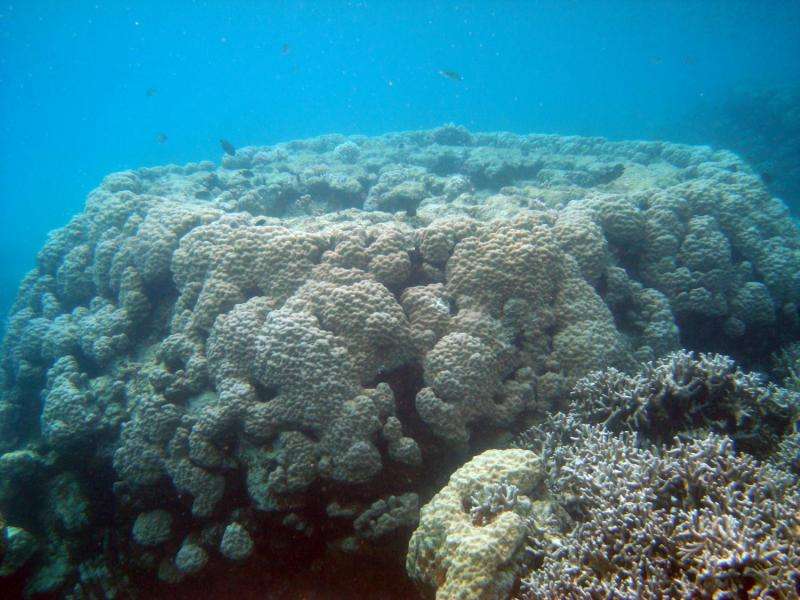The flat top of this massive Porites colony off the Palau archipelago, shown here at high tide, reflects the low-water spring tide line that limits its vertical growth. During low tide, the water level would be at the top of the colony. Credit: Florida Institute of Technology
The coral reefs that have protected Pacific Islanders from storm waves for thousands of years could grow rapidly enough to keep up with escalating sea levels if ocean temperatures do not rise too quickly, according to a new study from Florida Institute of Technology.
The study, published Wednesday in the journal Royal Society Open Science, provides the first evidence that well-managed reefs will be able to keep up with sea-level rise through vertical growth. But that can happen only if carbon dioxide levels in the atmosphere stay below 670 parts-per million (ppm). Carbon dioxide is the principal greenhouse gas responsible for most of global warming, which in turn increases ocean temperatures.
Today, the level of carbon dioxide is 400 ppm. Beyond 670 ppm - which represents a 3.5 degree Fahrenheit ocean temperature increase and could be reached within the next 100 years - even healthy reefs will not be able keep up.
"Reefs will continue to keep up with sea-level rise if we reduce our emission of greenhouse gases," said Florida Tech's Rob van Woesik, a professor in the Department of Biological Sciences. "If reefs lose their capacity to keep up with sea-level rise they will drown."
Van Woesik was joined by researchers from the University of Queensland and the Palau International Coral Reef Center in the study, which took place in Palau in the western Pacific Ocean.
Coral reefs are an intricate part of island culture, and they are considered a precious resource in the Pacific Ocean. If global temperatures continue to rise and thus retard the growth of these natural storm barriers, the homelands of millions of people on lands throughout the Pacific Ocean will be in jeopardy.
More information: R. Soc. Open Sci. 2015 2 150181; DOI: 10.1098/rsos.150181. Published 22 July 2015
Journal information: Royal Society Open Science
Provided by Florida Institute of Technology
























